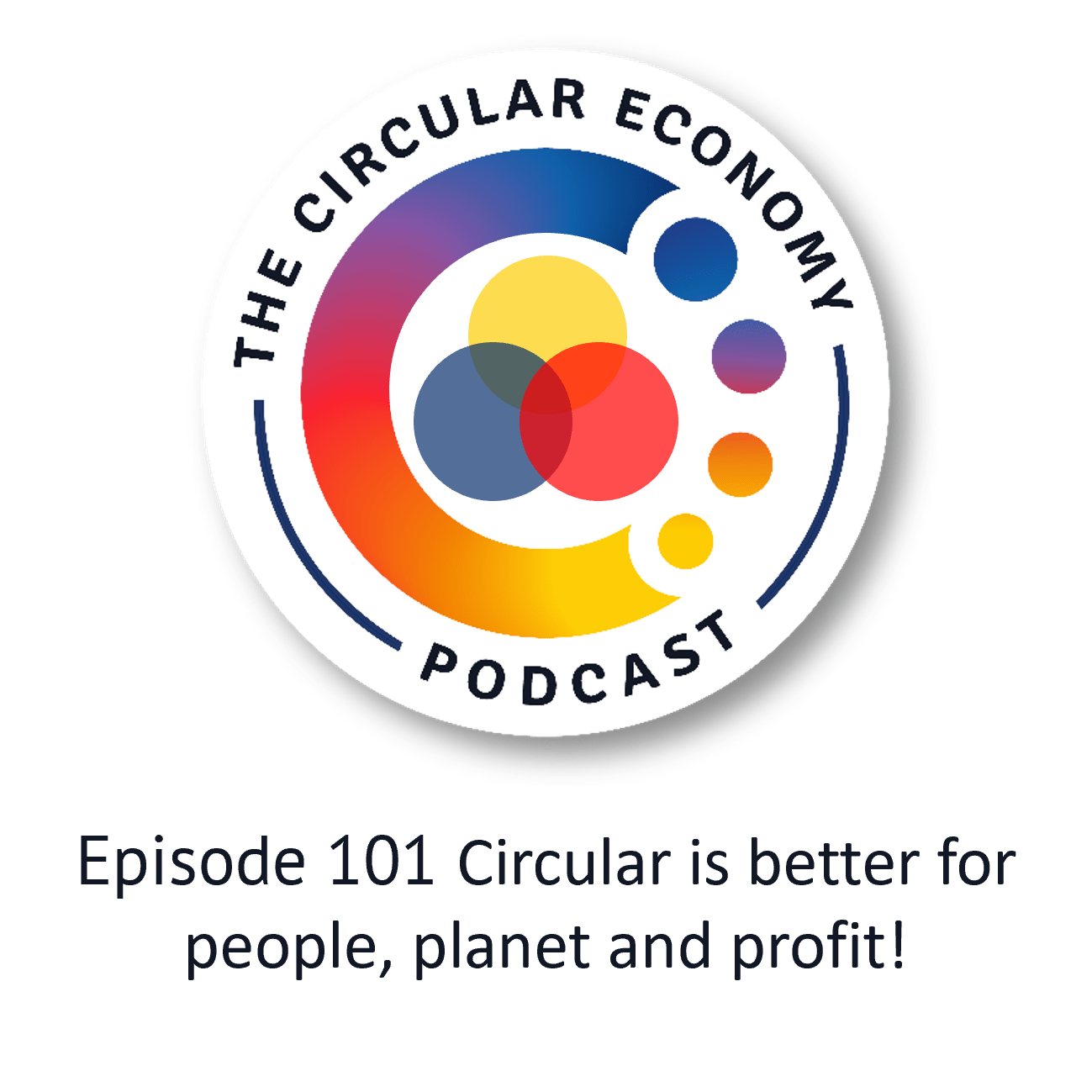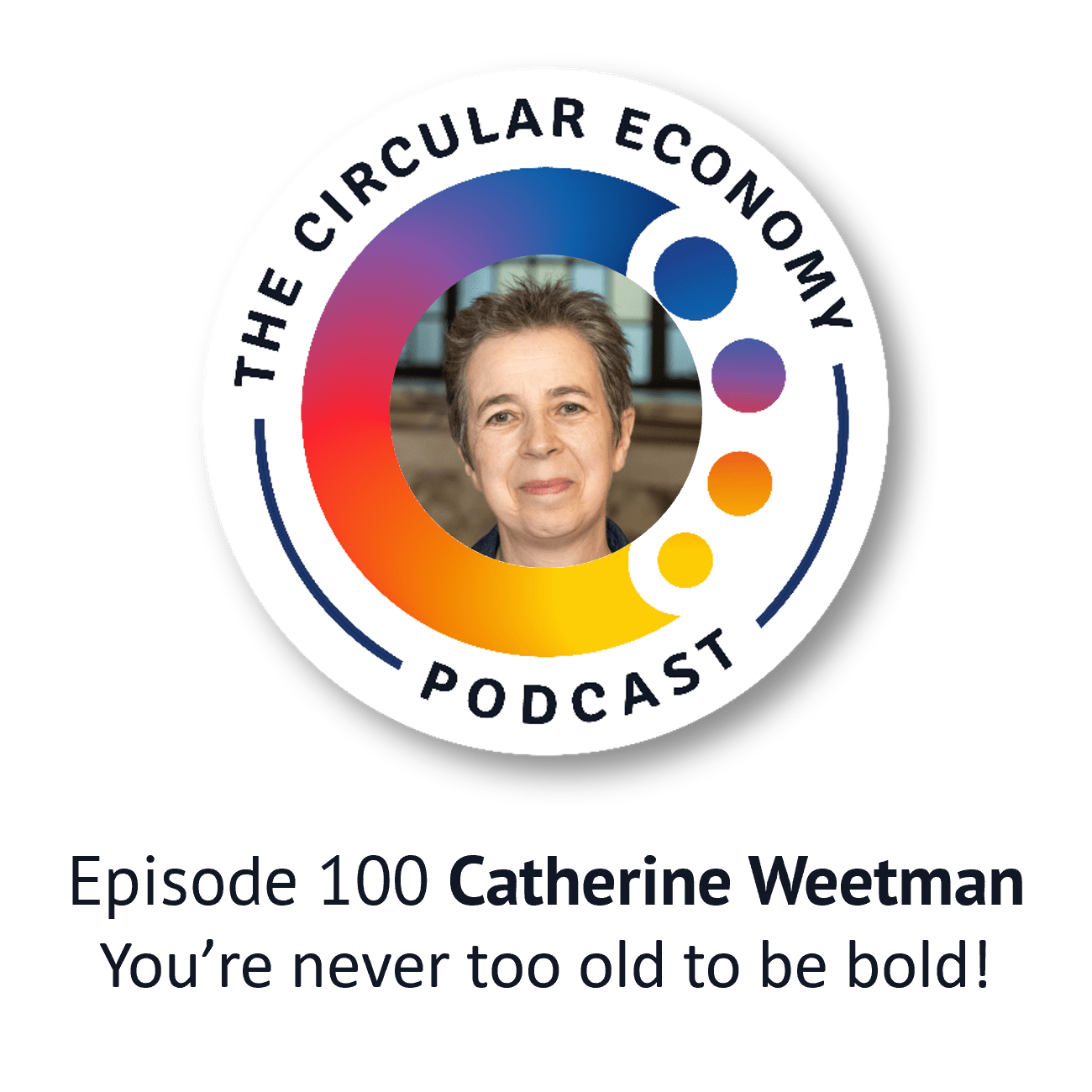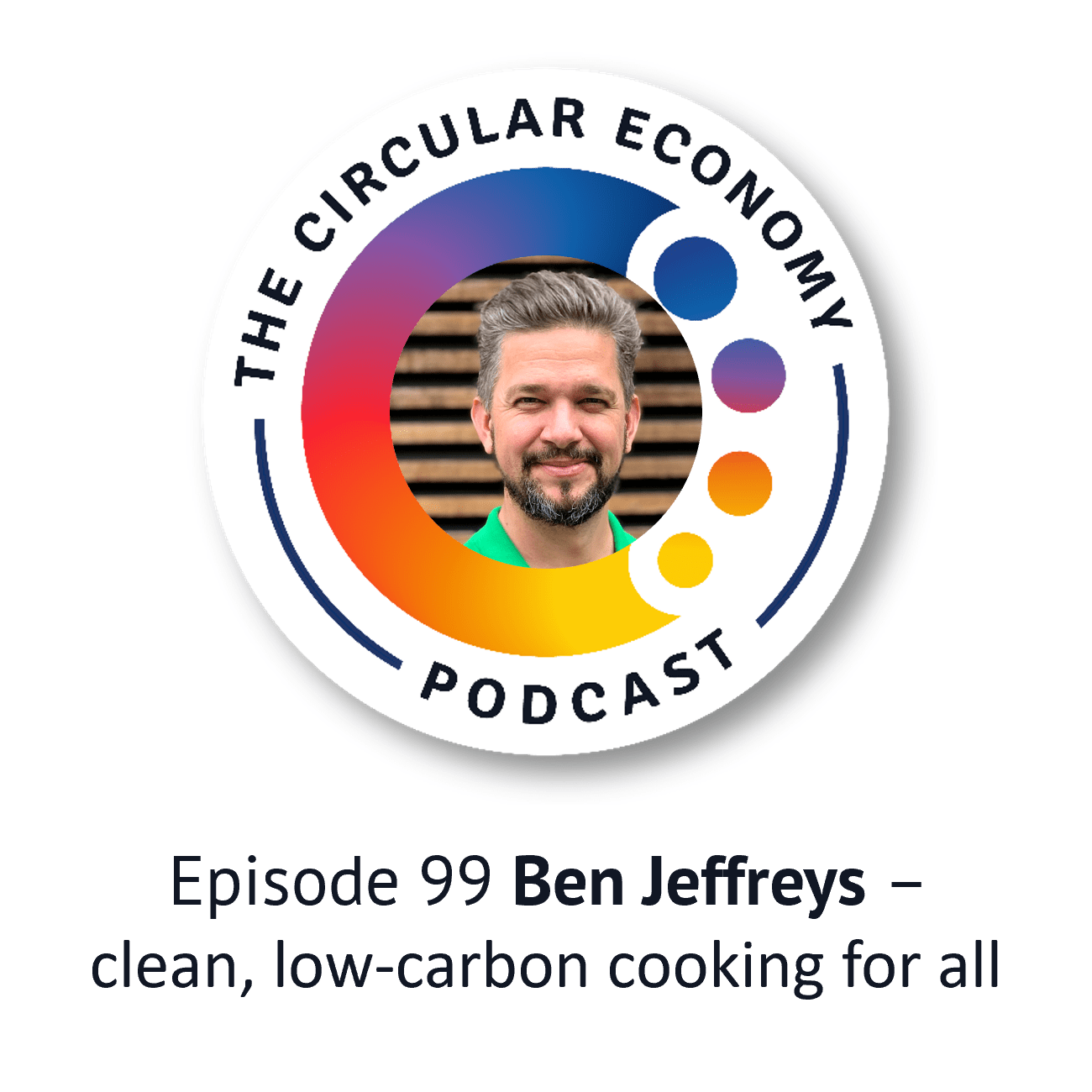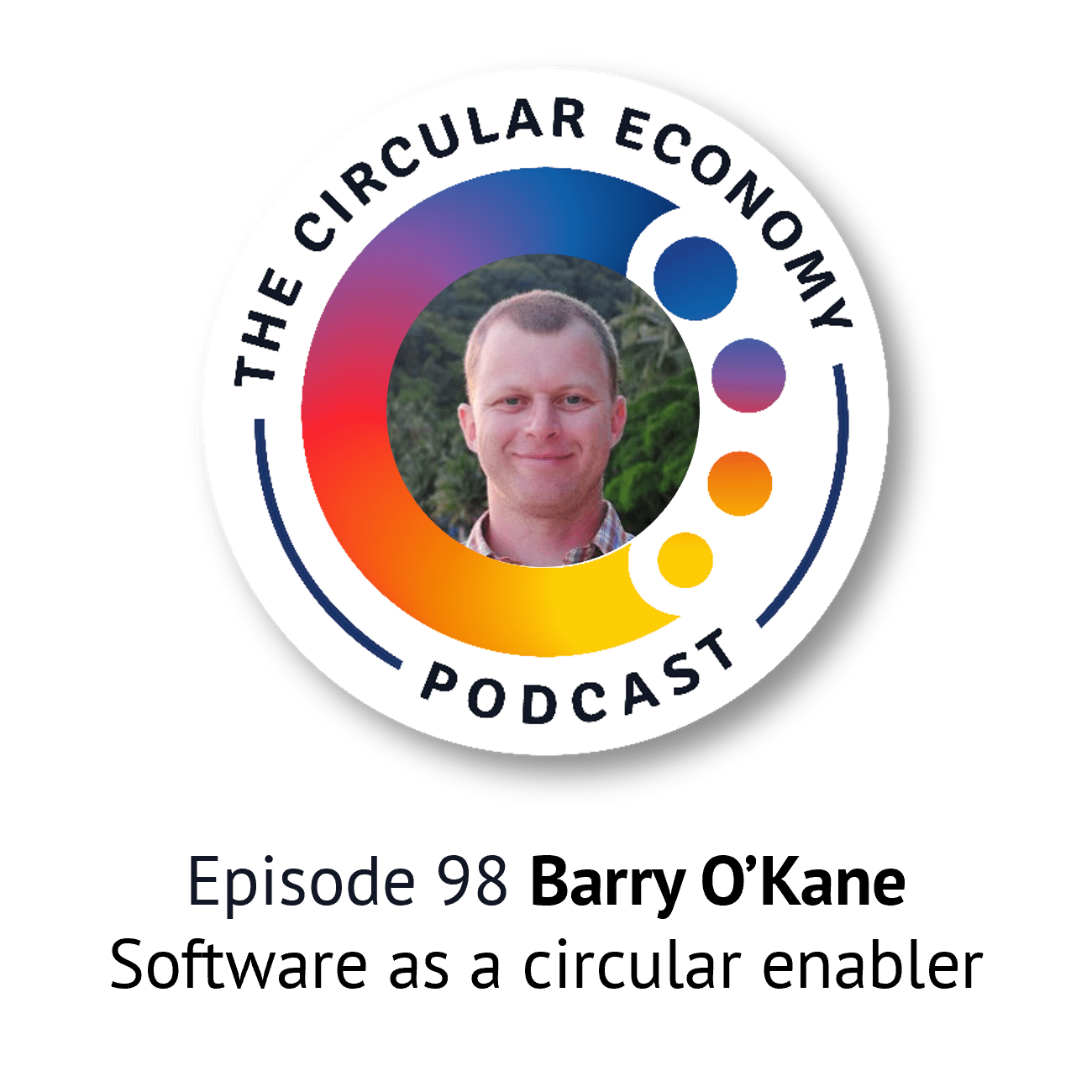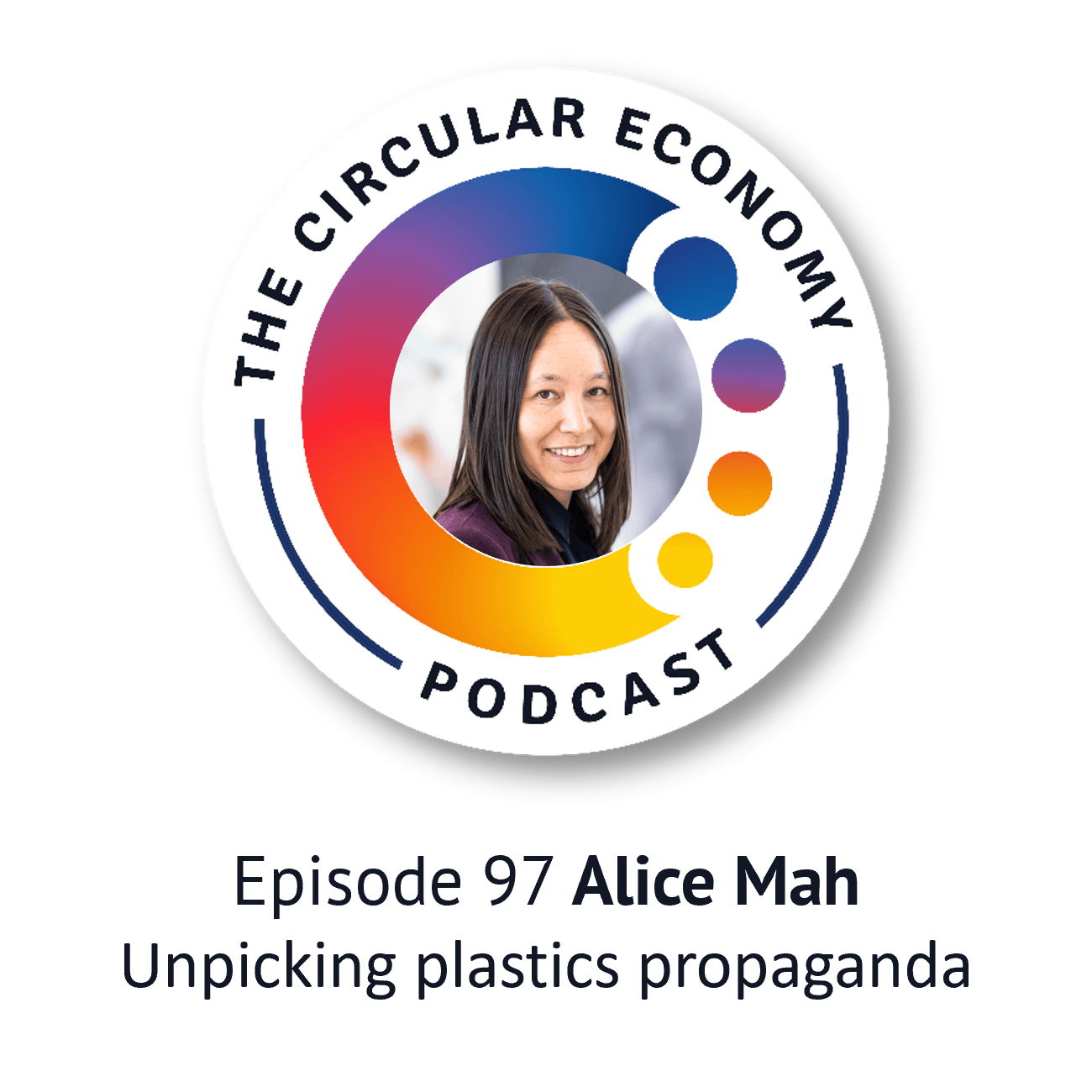Podcast: Play in new window | Download
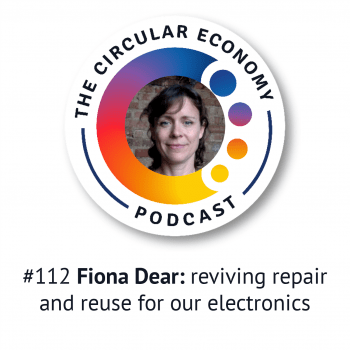
We meet Fiona Dear, a Co-Director at The Restart Project, which aims to keep our electronics in use for longer through repair and reuse. The Restart Project champions community repair, supporting regular Restart Parties where people teach each other how to repair their broken and slow devices. The Restart Project uses the data and stories they collect to help demand better, more sustainable electronics for all.
Having recognised that there’s only so much we can do to prevent waste downstream, the Restart Project is making waves upstream, campaigning for stronger regulations for better design, our right to repair and more support for the repair economy.
Before Restart, Fiona spent over 15 years working to engage public audiences in environmental issues. At the Restart Project, she oversees UK programmes and campaigning.
Fiona tells us about some of the many initiatives that the Restart Project has worked with partners to pioneer, including the Right to Repair movement (now with 100 organisations in the coalition), Restart Parties and more recently, Fixing Factories and FixFest.
I’m a big supporter of open sourcing, and this is central to what the Restart Project does – helping people collaborate and learn from others, providing online toolkits and guidelines to help people around the world fledge their own repair projects. This is about scaling out, rather than scaling up – something that Ken Webster and Craig Johnson advocate in their latest book on regenerative and circular economies, ABC& D.
Systems thinking is at the heart of The Restart Project’s approach, going upstream to understand the root causes of the problems, and Fiona tells us about some of their data collection on common faults.
It was fascinating to hear about how people’s mindsets are changing, and how a simple repair can spark all sorts of positive effects.
International speaker, author and strategic advisor, Catherine Weetman helps people discover why circular, regenerative and fair solutions are better for people, planet – and prosperity.
Catherine’s award-winning book: A Circular Economy Handbook: How to Build a More Resilient, Competitive and Sustainable Business includes lots of practical examples and tips on getting started.
Stay in touch for free insights and updates…
Read on for a summary of the podcast and links to the people, organisations and other resources we mention.
Don’t forget, you can subscribe to the podcast series on iTunes, Google Podcasts, PlayerFM, Spotify, TuneIn, or search for “circular economy” in your favourite podcast app. Stay in touch to get free insights and updates, direct to your inbox…
You can also use our interactive, searchable podcast index to find episodes by sector, by region or by circular strategy. Plus, there is now a regular Circular Economy Podcast newsletter, so you get the latest episode show notes and links delivered to your inbox on Sunday morning, each fortnight. The newsletter includes a link to the episode page on our website, with an audio player. You can subscribe by clicking this link to update your preferences.
Links we mention in the episode:
Catherine’s work:
- Circular Economy Podcast on LinkedIn: linkedin.com/showcase/circular-economy-podcast/
- Circular Economy Podcast website: circulareconomypodcast.com
- Catherine Weetman on LinkedIn: https://www.linkedin.com/in/catherine-weetman-9419107/
- A Circular Economy Handbook: How to Build a More Resilient, Competitive and Sustainable Business – buy from any good bookseller, or direct from the publisher Kogan Page, which ships worldwide (free shipping to UK and US) https://www.koganpage.com/CircEcon2
- Interactive podcast index https://www.rethinkglobal.info/circular-economy-podcast-index/
- Rethink Global www.rethinkglobal.info
- Sign up to get the podcast player and shownotes for each new episode emailed to your inbox
Links for our guest:
- https://twitter.com/restartproject
- https://www.facebook.com/RestartProject
- https://www.instagram.com/restartproject/
- https://therestartproject.org/podcast/
- https://therestartproject.org/
Books, people and organisations we mentioned
- Book – The Human Element by Loran Nordgren and David Schonthal https://www.humanelementbook.com/
- ABC & D: Creating a regenerative circular economy for all, by Craig Johnson and Ken Webster https://bookshop.org/p/books/abc-d-creating-a-regenerative-circular-economy-for-all-craig-johnson/17863262
Guest bio
Fiona Dear is Co-Director at The Restart Project, which aims to keep our electronics in use for longer through repair and reuse. The Restart Project champions community repair, supporting regular Restart Parties where people teach each other how to repair their broken and slow devices, and using the data and stories they collect to help demand better, more sustainable electronics for all. Recognising that there’s only so much we can do to prevent waste downstream, Restart also campaigns for better regulations for better design, right to repair and support for the repair economy.
Before Restart, Fiona spent over 15 years working to engage public audiences in environmental issues. At the Restart Project, she oversees UK programmes and campaigning.
The Restart Project aims to keep our electronics in use for longer through repair and reuse. The Restart Project champions community repair, supporting regular Restart Parties where people teach each other how to repair their broken and slow devices, and developing Fixing Factories, fixed highstreet repair hubs. Recognising that there’s only so much we can do to prevent waste downstream, Restart also uses the data and stories they collect to help demand better, more sustainable electronics for all.
Playlist: getting started with the circular economy…
Want to know more about the what the circular economy really is, and how it can help your business? Here’s a playlist to help you get to grips with the concept, how it creates value, and the common myths (spoiler alert – it’s much more than recycling!)
- #1 What is the circular economy: A quick intro to explain what the circular economy is and why it’s important. We explore how it helps create better products and services, and at the same time helps to make a better world. I break it down into my 5 circular economy components, helping you think about each part of your business.
- #2 The linear economy and your risk checklist: We dig a bit deeper into the way we do business now, the linear economy, and why that’s creating problems for business, society and our living planet. Also, we’ll look at the risks that emerge from those big-picture issues, and how they might affect your organisation.
- #90 Does circular mean it’s sustainable? Catherine Weetman is worried that companies are using circular economy solutions to grow their business (and their footprints).
- #101 Circular is better for people, planet and profit! How three simple strategies can help you get started with circular and regenerative solutions that are better for people, planet and profit.
- #120 Priorities are changing: people find life is better when we care for and share things – circular economy strategies make that better for business, too.
And here’s Catherine’s guide: What is the circular economy?
Want to dig deeper?
Why not buy Catherine’s award-winning book, A Circular Economy Handbook: How to Build a More Resilient, Competitive and Sustainable Business. This comprehensive guide uses a bottom-up, practical approach, and includes hundreds of real examples from around the world, to help you really ‘get’ the circular economy. Even better, you’ll be inspired with ideas to make your own business more competitive, resilient and sustainable.
Please let us know what you think of the podcast – and we’d love it if you could leave us a review on iTunes, or wherever you find your podcasts. Or send us an email…
Please let us know what you think of the podcast – and we’d love it if you could leave us a review on iTunes, or wherever you find your podcasts. Or send us an email…
Podcast music
Thanks to Belinda O’Hooley and Heidi Tidow, otherwise known as the brilliant, inventive and generous folk duo, O’Hooley & Tidow for allowing me to use the instrumentals from the live version of Summat’s Brewin’ as music for the podcast. You can find the whole track (inspired by the Copper Family song “Oh Good Ale”) on their album, also called Summat’s Brewin’. Or, follow them on Twitter.
